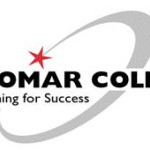- Branża: Education
- Number of terms: 12355
- Number of blossaries: 0
- Company Profile:
Founded in 1946, Palomar College is a public two-year community college in the city of San Marcos, located in north San Diego County, California. Palomar offers over 300 associate degree, certificate programs and is designated by the U.S. Department of Education as an Hispanic-Serving Institution ...
They exist in variable numbers and types but make up a very small part of human blood volume. Some leukocytes (i.e., lymphocytes) provide a physiological defense against infection. As a result, their numbers increase when the body is under attack by bacteria and viruses. Some other types of leukocytes (i.e., macrophages ) have the function of getting rid of old unneeded blood cells.
Industry:Anthropology
The relatively large red cells in blood that transport oxygen from the lungs to all of the living tissues of the body. Normally, 40-45% of human blood volume consists of erythrocytes.
Industry:Anthropology
The sixth geological epoch of the Cenozoic Era. The Pleistocene occurred approximately 1. 81 million to 10,000 years ago. This was mostly a time of world cooling punctuated by 3-4 major ice ages. Most human evolution took place during the Pleistocene.
Industry:Anthropology
The situation in which two different alleles for a trait are expressed unblended in the phenotype of heterozygous individuals. Neither allele is dominant or recessive, so that both appear in the phenotype or influence it. Type AB blood is an example. Such traits are said to be codominant.
Industry:Anthropology
The situation in which an allele is expressed only if certain factors are present in the environment. The triggering of genetically inherited diabetes by obesity and possibly severe emotional stress is an example.
Industry:Anthropology
The situation in which a single gene is responsible for a variety of traits. The collective group of symptoms known as sickle-cell trait is an example.
Industry:Anthropology
The situation in which a population is not evolving from generation to generation--that is, the population's gene pool frequencies remain unchanged.
Industry:Anthropology
The situation in which a mother's blood type is different from that of her unborn child. In the case of some combinations of types, the mother's blood system can produce antibodies to antigens on the surface of the red cells of her fetus resulting in their agglutination. This is the case when the mother is Rh- and her fetus is Rh+. As a result of this incompatibility, the fetus can develop erythroblastosis fetalis.
Industry:Anthropology
The situation in which a heterozygous genotype results in a phenotype that is intermediate between those resulting from the homozygous genotypes. The mid-range baritone male voice is an example.
Industry:Anthropology
